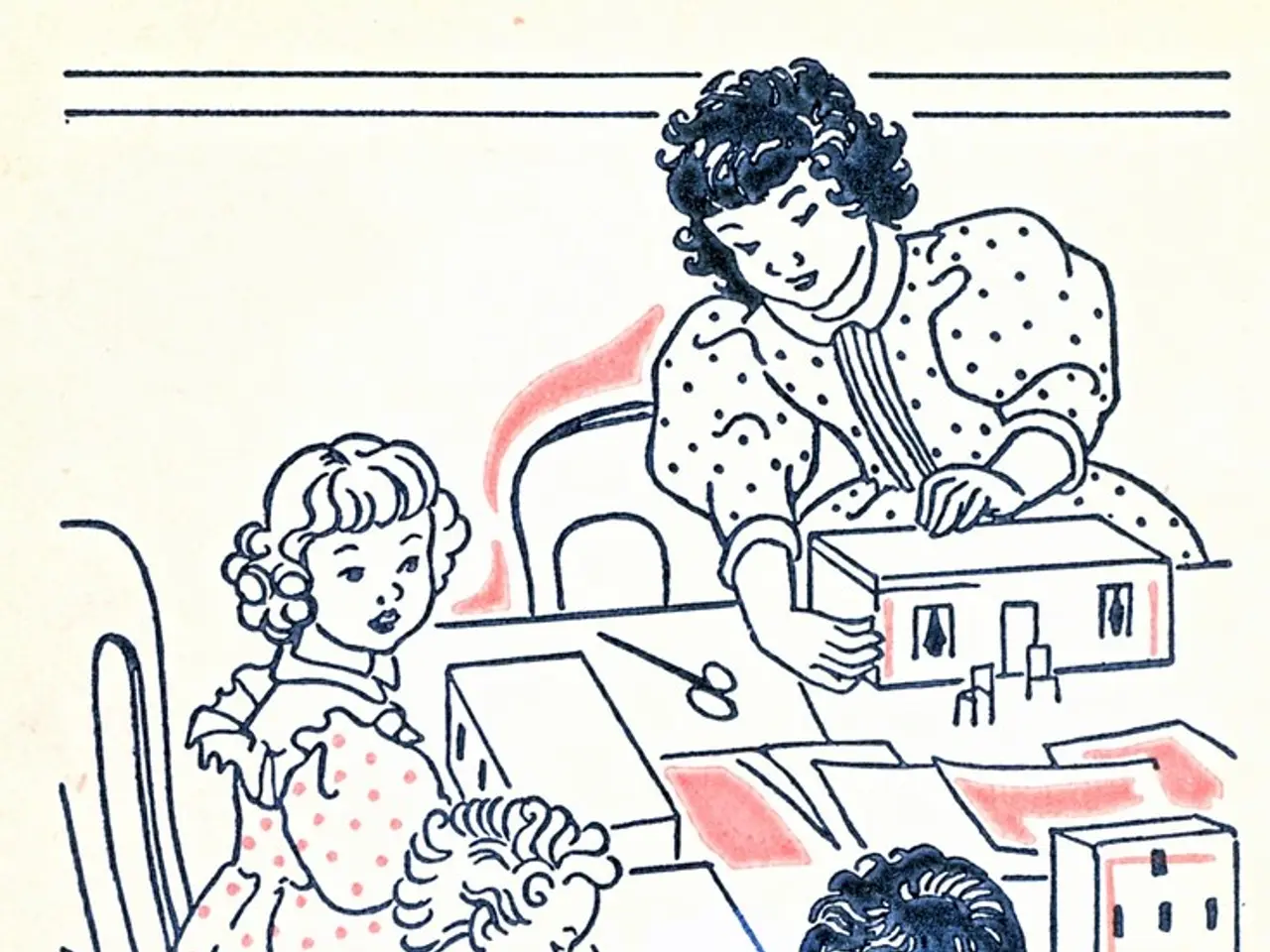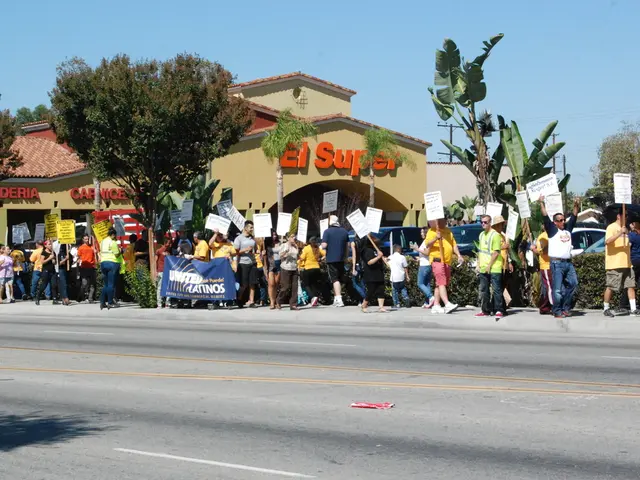School Labor Party Demands Implementation of Minimum Wage for School-Aged Workers
In recent news, Jan van Aken, co-chair of the Left Party, has initiated an inquiry into the increasing number of students working part-time jobs and the impact of inflation and precarious conditions on their livelihoods.
According to van Aken, these factors are driving students to take on part-time jobs, with the number of employed students in this age group having increased since 2020. In response to these concerns, the Left Party has called for a minimum wage for young workers in Germany.
Currently, the minimum wage for student jobs in Germany is governed by the national minimum wage law, which sets the floor at €12.82 per hour as of January 1, 2025. This applies to all workers, including students, who are employed in jobs that pay hourly wages above the Minijob threshold.
Student jobs in Germany typically fall into two main categories: Minijobs and Werkstudent jobs. Minijobs are low-hour or low-earning jobs (up to €520 monthly in 2025) that are exempt from social security contributions but may not always pay the minimum wage. On the other hand, Werkstudent jobs are part-time jobs for students earning above the Minijob limit, which must comply with the national minimum wage and include pension contributions.
The national minimum wage increased from €12.41 to €12.82 per hour in 2025 and is planned to increase further to €13.90 per hour from January 1, 2026, and then to €14.60 per hour from January 1, 2027.
Arguments for applying minimum wage to student jobs include fair compensation, legal consistency, and attraction and retention. However, concerns have been raised about increased employment costs, the impact on Werkstudent wages, budget constraints, and the potential lowering of net income for students.
As students and employers navigate the trade-offs between gross wage increases and net income due to social contributions and taxation implications, it is essential to consider the gradual increase in the national minimum wage and its impact on take-home pay. Students should carefully consider the net effect on take-home pay when switching from Minijob to Werkstudent positions, as gross wage increases do not always translate into better net earnings due to deductions.
The response from the Federal Ministry of Labor and Social Affairs regarding the Left Party's inquiry was not provided in the article. However, it was reported that the "Tagesspiegel" obtained a written response from the Federal Ministry of Labor and Social Affairs regarding the Left Party's inquiry.
With over 351,000 students aged 15 to 18 in Germany being employed last year, and approximately two million students in the same age group being counted in the same year, the issue of student employment and minimum wage is a significant one that warrants further discussion and action.
The Left Party's inquiry into the rising number of student part-time jobs reveals a need for a minimum wage for young workers, given the impact of inflation and precarious conditions on students' livelihoods. This call for action comes amidst ongoing concerns about student employment policies and their impact on the general-news landscape, particularly within the politics sphere.








